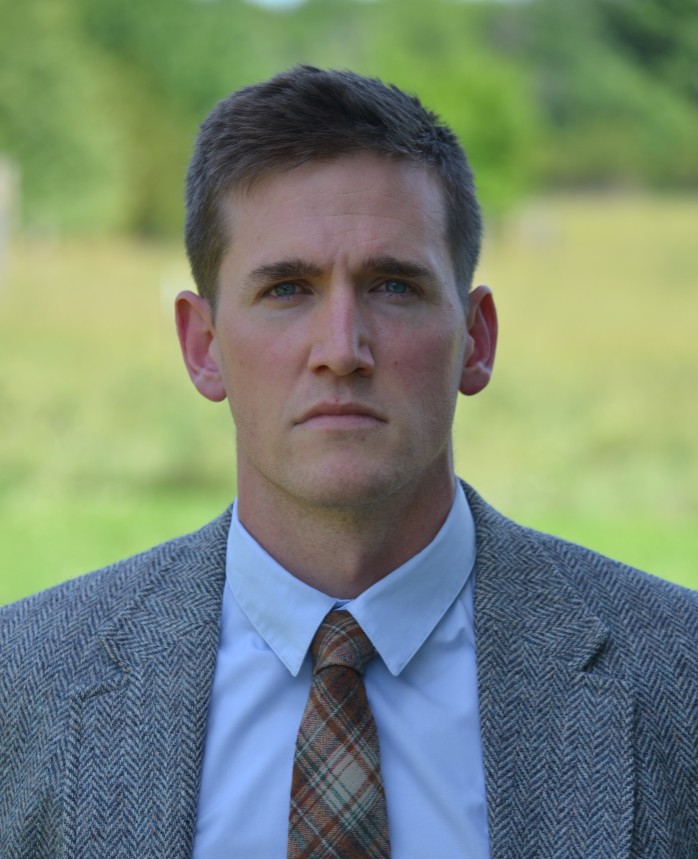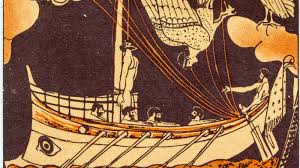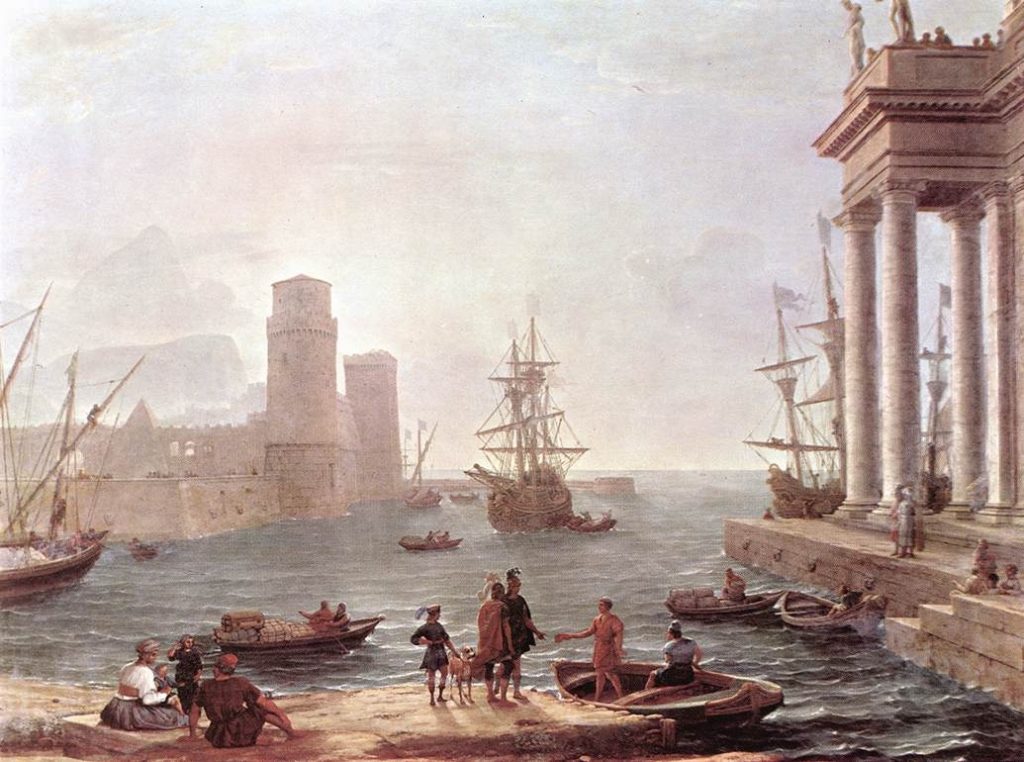Ladies and Gentlemen, Faculty and Staff of St. Martin’s, and each one of you students, I’d like to welcome you and thank you for being here for our final gathering of the year. It’s very good to see all of you though I regret, no doubt as do all of you, that we are unable to hold this event in person in our own Theotokos Hall.

As you all know, I have accepted a position at Hillsdale College in southern Michigan and this, therefore, will be my last opportunity to address all of you as your headmaster. I am proud of what we have accomplished here over the last several years and am grateful to say that the Academy is today strong and well and will continue to flourish under the caring leadership of my partner and co-founder Mr. Daniel Kerr.
Rather than reflect on what we’ve accomplished in founding a school like this, I’d like to address my remarks specifically as a teacher to his students. It was an unpleasant reality for you and for me that as your headmaster you often heard from me when something was wrong or someone was in trouble. Those were not my favorite duties…but neither were they my least favorite. It is a privilege to have charge of and to discipline an institution like this, a faculty like ours, and students like you. Be assured that the steps I took to discipline you or to address problems within the school were steps taken in genuine love and care for you and the Academy. I suspect that you will find in your life that usually tough love is true love.
I have read with many of you a poem entitled “Ithaca,” that was written by the 20th Century Greek poet Constantine Cavafy. This is how the poem begins:
As you set out on your way to Ithaca Hope that the road is a long one, Filled with adventures, filled with discoveries.

As you all know, Ithaca is the island kingdom that is Odysseus’s homeland where his wife Penelope and son Telemachus await his arrival after years of absence fighting in the Trojan war. This is one of many poems and works of art that meditate on that greatest of adventurers, Odysseus. He has preoccupied writers and artists across millennia and holds the attention of greats like Dante who places him in Hell; Alfred Lord Tennyson, and James Joyce, who might as well have placed him in hell. I think he is the subject of so much writing for at least two reasons:
The first is that he troubles folks. Does he trouble you? Odysseus is a king, a conqueror, an intellectual, a rhetorician, tactician, husband, adventurer, father, explorer, and brawler…not in his fancy, but in reality. Among other reasons, Odysseus troubles folks because he sticks in the craw of the comfortable, complacent, prurient, and self-satisfied who condemn him because he would not be satisfied as they have been satisfied. Odysseus rightfully intimidates. We hold our manhood cheap until we can say like Odysseus that we have joined in so great an adventure and met it with so great a spirit. Like those that Henry V roused to battle at Agincourt, being a really nice guy is simply not the same as being one who can roll up his sleeve and show his scars. Whatever else might be true of him, Odysseus was a man of tremendous experience.
The second reason western art cannot forget Odysseus is related to the first, and it is that the story of Odysseus has become an arch myth… it constitutes the heart of so many individual human histories worthy the name. Odysseus is no longer just a man, however great a man he was. He so embodied the heart of adventure, of travel, of voyage, of homesickness, and nostos or homecoming that we recall him in calling each iteration of these an odyssey. His name became universal because of his particularity.
And what is always particular is experience. No two of you have an identical experience, and the experiences you have accrue to each of you differently. Cavafy applauds the Odyssean appetite for breadth and depth of experience and I’ll read a large passage so he can tell you why in his words:
Cavafy says:
As you set out on your way to Ithaca Hope that the road is a long one, Filled with adventures, filled with discoveries... Hope that the road is a long one. Many may the summer mornings be When - with what pleasure, with what joy - You first put in to harbors new to your eyes; May you stop at Phoenician trading posts And acquire the finest wares; Mother of pearl, and coral, amber and ebony... Always in your mind keep Ithaca, To arrive there is your destiny. But do not hurry your trip in any way. Better that it last for many years; That you drop anchor at the island an old man, Rich with all you’ve gotten on the way Not expecting Ithaca to make you rich. Ithaca gave you the beautiful journey Without her you wouldn’t have set upon the road... And if you find her poor, Ithaca didn’t deceive you. As wise as you will have become, with so much experience, You will understand, by then, these Ithacas; what they mean. (trans. Daniel Mendelsohn 2009)
So finally, experience is the great teacher and Odysseus a man with the thirst for knowledge. In this he represents each of you as you are at your best in a school such as St. Martin’s is: a school of praxis, of doing, of being…a school of experiential knowledge. Cavafy says, “as wise as you will have become, with so much experience, you will understand…” but there is one essential thing that Cavafy leaves unsaid in this poem, and I’m convinced he does not articulate it explicitly because it is so essential it is presumed…the way you don’t notice the air because you always breath it and have to breathe it to live.

The one thing remaining to be said is discipline. And regarding the interaction of discipline and experience in Odysseus one can, and probably should debate at length. But for now I’d like to address my closing thoughts directly to you. The great teacher Mark Van Doren wrote that:
“Discipline is desirable; indeed it is craved by all who want wisdom out of their experience, or ability out of their acts.” (Liberal Arts)
…without discipline, your experience is nothing more dignified than a series of things happening to you from which you learn nothing, gain nothing, give nothing. Your acts, without discipline, are simply happenstance.
Mr. Whalen
That is to say that without discipline, your experience is nothing more dignified than a series of things happening to you from which you learn nothing, gain nothing, give nothing. Your acts, without discipline, are simply happenstance. Gentlemen, experience is often painful. It etches its lessons on you like a sculptor imparting meaningful and beautiful shape to a block of marble or granite. But it is discipline that constitutes the integrity of the marble, it is discipline that makes the marble hard enough to take the cut and hold the lines that in the human soul are wisdom. Without discipline, experience will still be painful, will still make its cuts, but instead of marble or granite, it will chop away at a soft, formless blob of jello…leaving no shape behind, certainly not wisdom.
You will not always have someone to discipline you, and simply responding to another’s discipline will never quite be enough. You must become disciplined yourself. You must become disciplined yourself, because only then will your experience make you wise. Ithaca offers you a beautiful journey, but few are man enough to take it. You must become disciplined because only then will your odyssey be worthy of that name.

